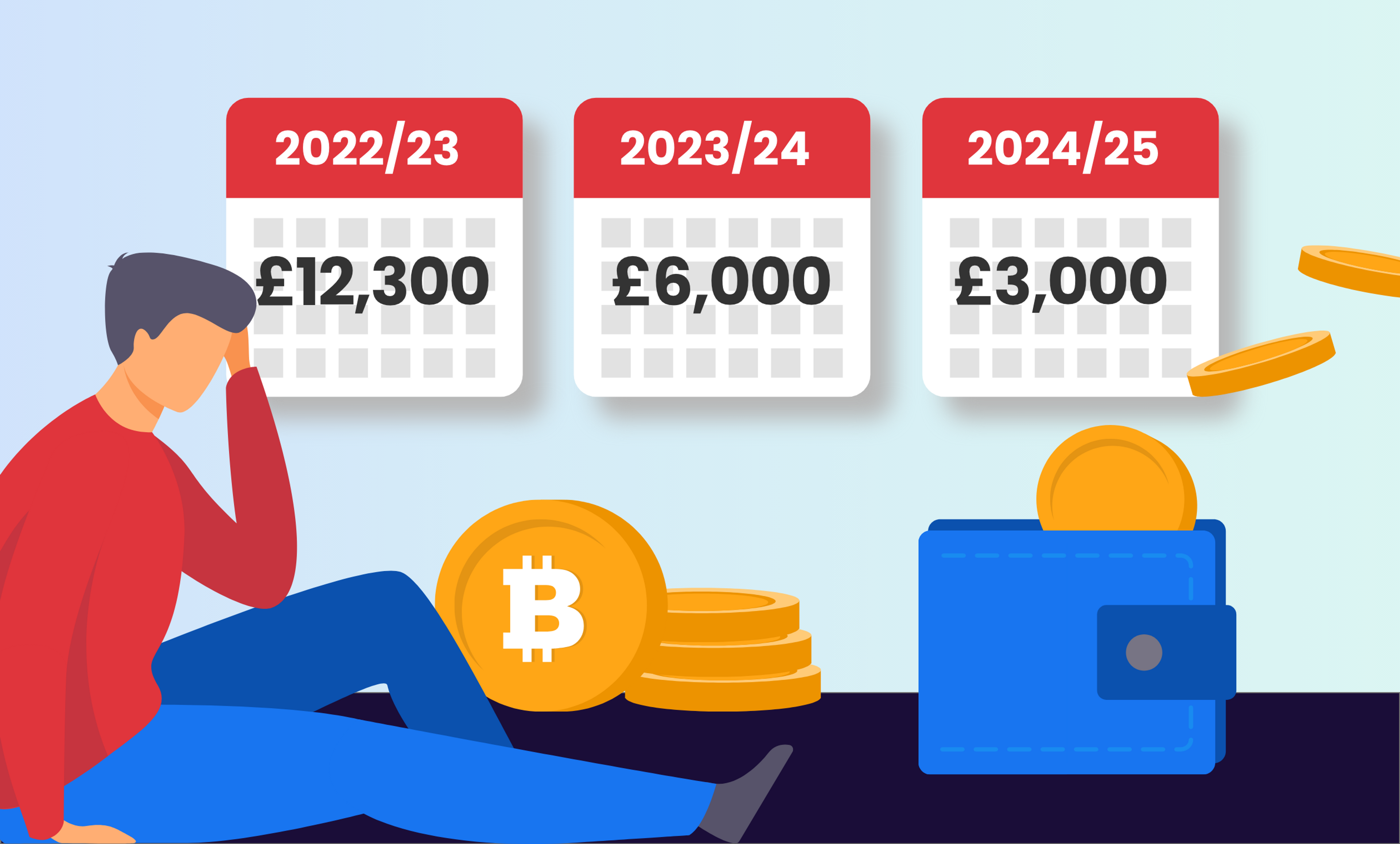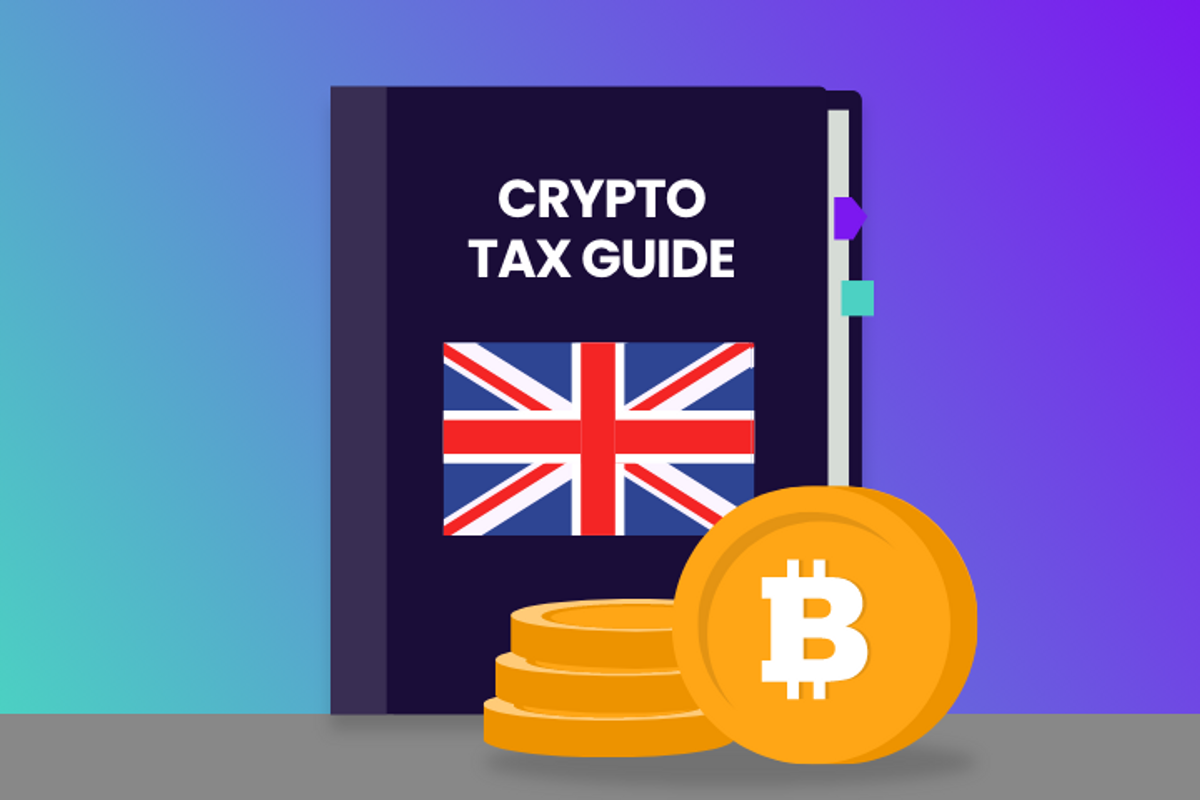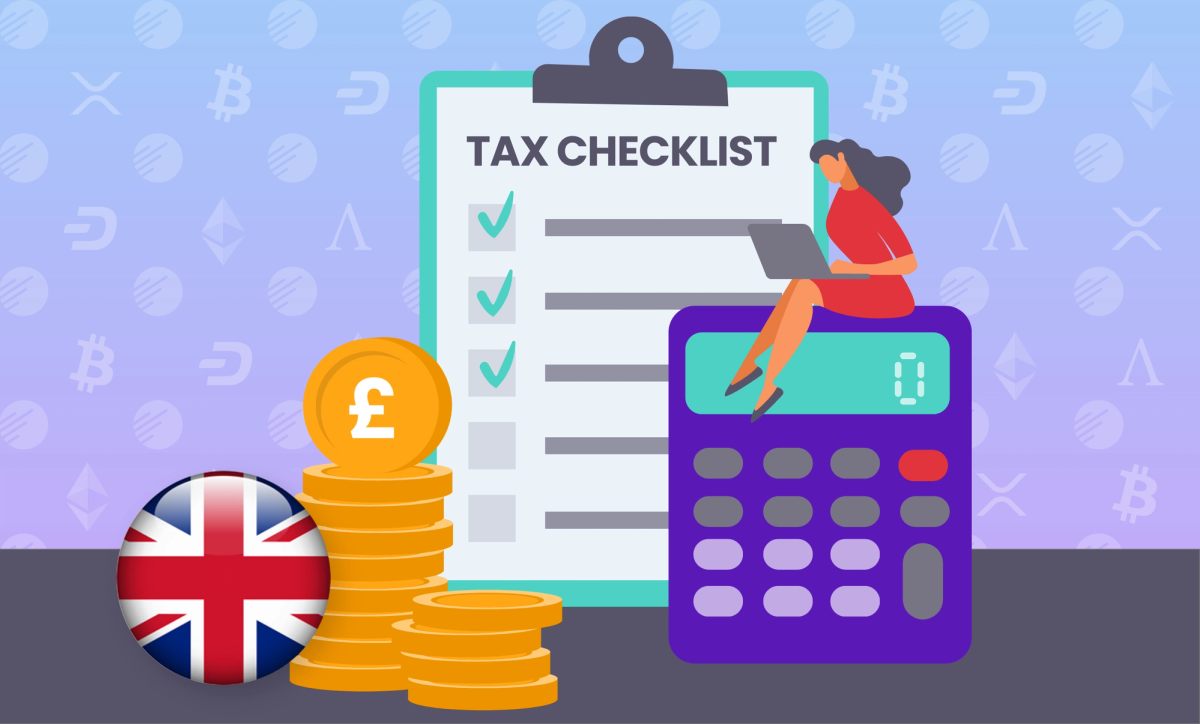
In April 2023, the UK Capital Gains Tax Allowance was reduced from £12,300 to £6,000 for the 2023/24 tax year and was reduced to £3,000 from April 2024, where it remains for 2025/26. This reduction will have a significant impact on all investors, especially those with cryptocurrencies. In this blog post, we explore how the reduction of the UK Capital Gains Tax Allowance will affect crypto investors and provide guidance on how to prepare for the change.
Disclaimer
This guide is intended as a generic informative piece. This is not accounting or tax advice that can be relied upon for any UK individual’s specific circumstances. Please speak to a qualified tax advisor about your specific circumstances before acting upon any of the information in this article.
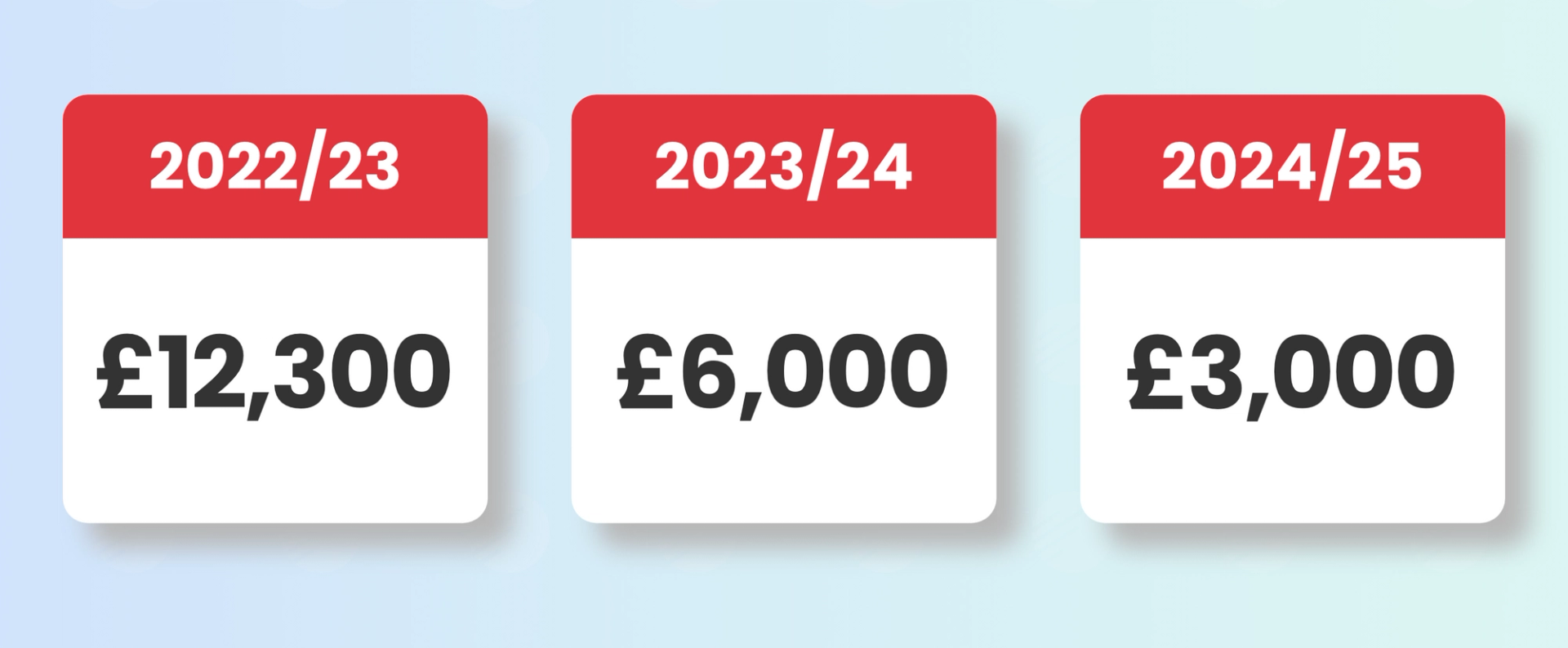
Overview of the UK capital gains tax allowance reduction
Led by Prime Minister Rishi Sunak and Chancellor of the Exchequer Jeremy Hunt, the UK Government’s Autumn statement in November 2022 set out their plan to reduce debt servicing costs and leave more money to invest in public services. As part of the statement they said:
Going forward, the fairest way to restore the public finances is to ask everyone to contribute a little, with those on the highest incomes and those making the highest profits paying a larger share.
The government described the capital gains annual exempt amount, which has been frozen at the same level for several years as “generous” and announced a cut from £12,300 to £3,000 over the next two years. This reduction, combined with their plan to halve the dividend allowance is projected to raise a over £1.2 billion a year from April 2025.
Hunt told the House of Commons:
Although my decisions today do lead to a substantial tax increase, we have not raised headline rates of taxation.
Impact of the capital gains allowance reduction on crypto users
The £12,300 capital gains allowance shielded many UK individuals from having to declare their capital gains, so as the threshold decreases over the next two years we will see an increase in the number of UK tax payers filing a self-assessment tax return.
Most UK taxpayers are taxed via PAYE and suddenly a large proportion of these individuals will fall into the scope of taxation. Having never had to file a return before it will be really difficult for them to understand and comply with the tax laws. It’s likely to cause a big headache for many people and also put pressure on the accounting industry because there will be increased demand for professional help.
Crypto users are particularly vulnerable because the capital gains allowance reduction is likely to result in a significant increase in their tax liability and establishing this can be complicated. There is also still much confusion around the taxation of crypto, the majority of users being oblivious that it is even taxable - in July 2022 HMRCs Uptake and Understanding Survey found that 58% crypto users were unaware they are liable to pay tax.
For those crypto investors who are aware, it is extremely hard to understand if they have a tax position to declare at all. Unfortunately, and as is commonly misunderstood it is not just a case of deciding ‘Did I cash out more than I put in?’ In fact, all crypto-to-crypto trades, purchases and gifts made with crypto are also counted as disposals by HMRC.
To figure out if they need to file, crypto investors need to work out their total capital gain by collating all crypto transactions, establishing the cost basis (original acquisition cost of each asset) and calculating the gain on each individual disposal, whilst also ensuring that the correct pooling rules are applied.
Crypto users who have previously been able to guesstimate comfortably that their activity could not have generated a taxable gain above the £12,300 threshold, may suddenly find themselves having to delve into the finer detail to comply, especially when the allowance reaches £3k in the 2024/25 tax year.
Investors making lots of small crypto-to-crypto trades are at risk of being caught out because activity resulting in low value profit could soon accumulate and max out their allowance before crypto is even converted into pounds.
There should also be careful consideration if profit from crypto is going to be used to pay the tax bill as this sale into fiat generates another taxable disposal. Because the UK's tax year ends in April, but tax is payable the following January, the timing of this disposal could affect the following tax year. There is also potential for assets to drop in value before "cashing out" leaving the individual with a high tax bill from crypto trading that they are unable to pay.
This is where a reliable crypto tax calculator like Recap can be a total game changer. We automate record keeping and tax calculations, saving you time, reducing potential for errors, and ensuring compliance with the latest tax regulations. The dashboard also provides a view of capital gains for the current tax year with an estimate of the tax due helping you to plan ahead and also make the most of your allowances.
How crypto investors can prepare for the reduction of the UK capital gains allowance
Now is the time to get clued up and plan ahead. The £3,000 allowance applies to both 2024/25 and 2025/26, so proactive tax planning is more important than ever.
- Get to grips with the basics of crypto tax so that you can make more informed trading decisions, rather than just thinking about the tax consequences after. Check out HMRCs Cryptoasset Manual or our own Crypto Tax Guide if you prefer a lighter and more colourful read.
- Learn how to optimise your capital gains and make the most of your allowance. Are you sitting on any depleting assets that could be realised as a loss if sold, could you gift some assets to your spouse to make use of their capital gains allowance? Check out our blog Can you avoid paying crypto tax? for some ideas.
- Register for self assessment - if you’ve never filed a self assessment tax return then you’ll need to register with HMRC by 5th October to file the following January. For example, if you need to file your 2022/23 tax return, you should register by 5th October and you have until the 31st January 2024 to file and pay your taxes.
- Use a crypto tax calculator like Recap to do the complicated work for you. It calculates your taxes, providing a ready to file tax report and it also allows you to track your tax liability for the current year while it’s still possible to influence it. See if you’re within your allowances and get an estimate of your tax due to plan ahead accordingly.
- Get professional help! Tax rules around crypto are complex, particularly if you’re making advanced trades or are involved DeFi, but that's no excuse for non-compliance. Consulting an accountant or tax professional with experience in cryptocurrency could save you a lot of headaches in the long run! Drop us a message if you’d like an introduction to one of our partners.
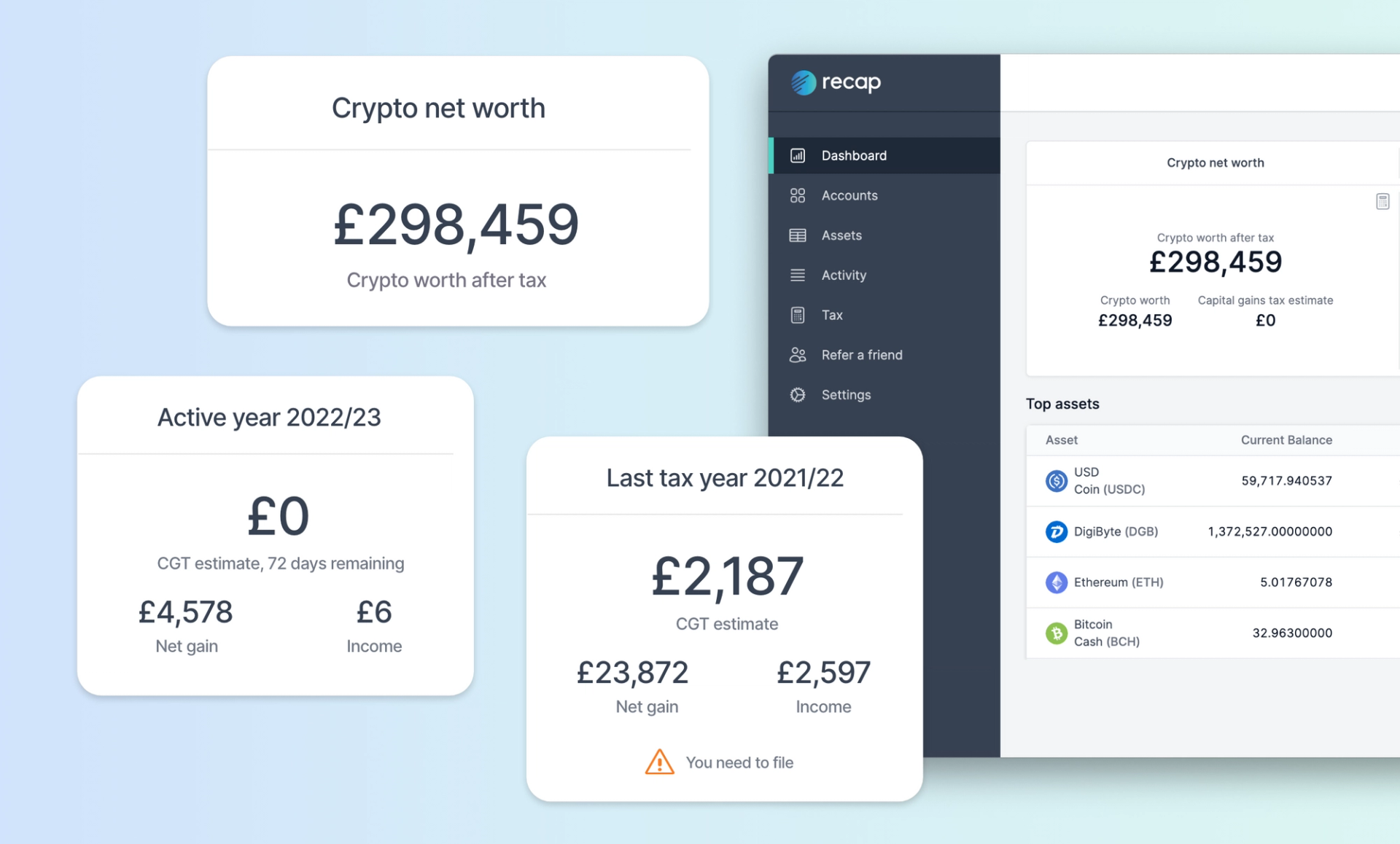
Conclusion
The reduction of the UK Capital Gains Tax Allowance is having a significant impact on all investors, especially those who hold cryptocurrencies. Crypto users should be aware of the changes and take steps to prepare for it.
If you’re going to be affected then make sure to take advantage of your allowance for 2023/24 before the tax year ends on 5th April. A tool like Recap can help you stay on top of your crypto tax liability and optimise your tax bill without any hassle.
